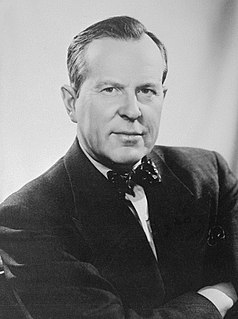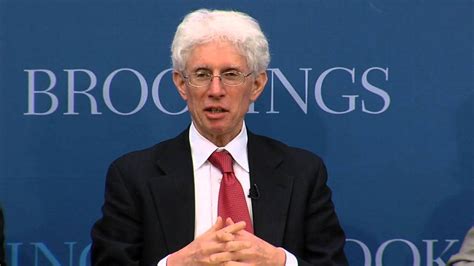A Quote by Joseph Rotblat
But the first the general public learned about the discovery was the news of the destruction of Hiroshima by the atom bomb. A splendid achievement of science and technology had turned malign. Science became identified with death and destruction.
Related Quotes
Today, nothing is unusual about a scientific discovery's being followed soon after by a technical application: The discovery of electrons led to electronics; fission led to nuclear energy. But before the 1880's, science played almost no role in the advances of technology. For example, James Watt developed the first efficient steam engine long before science established the equivalence between mechanical heat and energy.
I've learned to distinguish between the greatness of God and the inexcusable evil that has been done by those professing his name. And so I do not deduce [as Christopher Hitchens does] that God is not great, and that religion poisons everything. After all, if I failed to distinguish between the genius of Einstein and the abuse of his science to create weapons of mass destruction, I might be tempted to say science is not great, and technology poisons everything.
Science fiction is fantasy about issues of science. Science fiction is a subset of fantasy. Fantasy predated it by several millennia. The '30s to the '50s were the golden age of science fiction - this was because, to a large degree, it was at this point that technology and science had exposed its potential without revealing the limitations.
Poverty is a weapon of mass destruction. Joblessness is a weapon of mass destruction, homelessness, a weapon of mass destruction... racism, a weapon of mass destruction, fear, a weapon of mass destruction. We must disarm these weapons and renew our commitment to quality public schools and dedicated teachers and good housing and quality health care and decent jobs and stronger neighborhoods.
Joblessness is a weapon of mass destruction. Poverty is a weapon of mass destruction. Hunger is a weapon of mass destruction. Poor health care is a weapon of mass destruction. Poor education is a weapon of mass destruction. Discrimination is a weapon of mass destruction. Let us abolish such weapons of mass destruction here at home.
Science is the only news. When you scan a news portal or magazine, all the human interest stuff is the same old he-said-she-said, the politics and economics the same cyclical dramas, the fashions a pathetic illusion of newness; even the technology is predictable if you know the science behind it. Human nature doesn't change much; science does, and the change accrues, altering the world irreversibly



































